
Violet Skies: “It’s a safe space for people who otherwise would be potentially uncomfortable in the writing rooms”
As well as putting on inclusive female and LGBTQ+ writing camps, the in-demand songwriter recently released a stirring debut album
On 17 June, singer-songwriter and producer Violet Skies dropped her long-awaited debut album, If I Saw You Again. Skies’ journey in the music industry kicked off with the 2013 release of first single, How The Mighty, and her path has continued to ascend with follow-up recordings and writing songs for fellow artists. LÉON, Mabel and Tiësto, and Diana Ross are just a few performers Skies has co-written tracks for.
A string of EPs including I’ll Buy a House and Lonely, which together have scored more than 20 million streams, have led to Skies’ first full-length album. Covid lockdown left her grounded in Los Angeles and afforded her the time to finish production on new music. In this atmosphere, she was able to create a stirring collection of songs that give a candid look at the complexities of human relationships.
With the lyrics, “Ain’t it funny how the line between love and hate / Is so much closer than we thought,” We Don’t Get Along seamlessly paints the picture of a union that’s quickly fading yet still marked with love. The riveting Over The Valley looks back on memories using words that were once spoken by Skies’ late grandmother, while When Are We Gonna Do This addresses the hopeful early stages of a possible new love. As Skies explores her most intimate connections on the album, the finished record is some of her most moving work yet.
Aside from her rich writing and recording ventures, Skies has initiated an organization with songwriter and producer Charlie McClean (One Direction, Little Mix, Leona Lewis) called sheWrites that connects female songwriters. The LGBTQ+-friendly group conducts writing camps and yields collaborations between talented professionals while combating industry discrimination.
Here we catch up with Skies about the making of If I Saw You Again and discuss the payoffs that result from the artist’s use of deeply personal lyrics in her music.
Click here for more interviews
Was there a certain song or album that first piqued your interest in music?
“Yeah. So when I actually started writing, which was probably around 14 or 15, I listened to a lot of musicals and lots of choir music and stuff that I was singing in school. But then I heard Amy Winehouse when I was like 13/14, both the Frank album and later Back To Black, and then also Joni Mitchell when I was 14 – all of her albums, actually, but specifically Blue and Ladies Of The Canyon. That was a turning point in my writing, for sure.”
How do you feel your EPs helped shape your current music?
“I feel like they’ve been like stepping stones. With every EP and every song you ever finish or release, you get closer to what you’re aiming for. And I’m not sure if I’m ever going to reach it, but I do feel like you learn from the process. You learn what does and doesn’t work for you. I learned that I like producing, or at least exec producing, everything I do. I prefer when I have more control over the process because I feel like I get closer to my ideas.
“Also, the last few songs on the album were written alone and I think that would be something that happens more moving forward.”
Did the environment you were in while working on If I Saw You Again lead to the really pure, raw sound of the album?
“Some of it was feedback from fans… Every time I would release a song, they’d ask for the acoustic version, because it’s what they were used to seeing me do live. I was doing lots of support tours where I could only just bring me and my key player. So it started to inform me that people really liked less, and I also like less.
“I was saying recently to a friend that I learned guitar in lockdown and that had a massive impact on me just wanting to hear the songs that way. Love You Better, Hey God It’s Me, We Don’t Get Along… some of the stuff that I was really finishing and producing mostly alone before I brought other people in, were all started on guitar. So it made sense to keep them that way.
“I think production can be quite fatiguing also towards the finished product. I really wanted to get the songs done, and I was just more efficient in my process and wanted the songs to not be overproduced and potentially contaminated.”
We Don’t Get Along does a great job of articulating the mixed emotions of a collapsing relationship. What was your inspiration behind writing the track?
“That was super retrospective, that one. It came from a conversation I’d had with a friend about how you can love someone, and you don’t really stop loving them, actually; you stop liking them. It was really just straight from the conversation and it was looking back on an old relationship. One of my friends in London had been mentioning that they were having that relationship with their parents.
“So it was triggering those thoughts in my head that often [in] relationships, people keep saying when they break up, ‘But I still love you.’ And yeah, I think you kind of do, but when you don’t like someone anymore, you don’t respect them, it’s time to call it time because it’s quite hard to claw your way back from that.”
How did you decide to tackle the subject matter of Settle that leaves listeners thinking about how they may be settling in their own lives?
“That one is actually very twofold. Originally it came when I was standing on my balcony in L.A., and the news was on the TV about Notre Dame burning down. I remember looking out over the hills in California and there was still snow and it was summer. That sometimes does happen, but I just thought, ‘How weird is that. I’m in California and it’s snowing, and Paris is burning?’ There was this element of, the world does sometimes feel like it’s falling apart, especially with the news that we get all the time.
“I do feel like that about climate change, if I’m honest. I feel like we constantly settle and [say], ‘Oh, yeah, this is how it is now,’ and we just keep adapting, ‘Okay, cool, fine.’ Then it just consecutively gets worse. And by “we,” I mean our governments and those who actually have the power to make changes.”
“When I originally wrote those lyrics, “There’s still snow in California and Paris is on fire,” I just had that and nothing else. When I got into the session, I sang it for them and I was thinking about Half My Life. That song is about thinking you’ve spent half your life making the wrong decisions, and part of the reason I did that was because I was settling. So it’s kind of a bridge between the two things. It was definitely inspired by something else, but Settle is me trying to say to other people, ‘Please don’t do what I did and waste half your life with the wrong person, or the wrong place, or the wrong people.’”

Violet Skies: “I feel like they’ve been like stepping stones. With every EP and every song you ever finish or release, you get closer to what you’re aiming for”
Why do you think now was the right time to release your debut album?
“Because I gave myself time, if I’m super honest. I was always like, ‘Oh, one more EP or just a couple more songs, and then I’ll think about it.’ When the pandemic happened, I didn’t really have anything else. It wasn’t that I didn’t have anything else to do because I was still writing for other people. But I suddenly was given the time, or rather, I felt I was given time.
“What I’ve since learned is you can give yourself time because it’s my career. I can choose to do what I want with it. But I think we feel like we have all these commitments that we have to stick to. So I just spent large chunks of 2020 in my pyjamas, writing songs, getting in my room and finishing production, and really just learning and relearning how to do stuff again. I don’t know when else there would have been that time. There’s probably been an almost debut album by me many, many times over the years, but it’s just never worked out.
“I was actually speaking to my friend, Francis, a songwriter, on her podcast sometime last year; she was like, ‘I want to speak to you because your path has been really unusual.’ It has been unusual in certain aspects, but more than anything I feel like I’ve been doing a lot, but the path has been long. So it’s been a very, gradual process to get to this point. Now that it’s here I genuinely can’t believe it. I was not expecting it to come up so fast. I thought, “Oh, I’d have forever,” because it seems like it took forever.”
Was there ever a time when it was difficult for you to share such personal lyrics?
“Sometimes I listen to the songs and I think, ‘No one’s ever going to work out who that is,’ and they probably won’t. But, they are a bit close to the bone sometimes because I stopped being afraid.
“Settle is another one of those songs that’s kind of a linchpin of the album. It’s why I wanted it to open the album, because I’d spent so long writing these metaphors and obtuse songs, and I guess they’re incredibly vague references to what was going on in my life. There’s a reason why people don’t always connect with that. They either can hear the insincerity or they’re not really sure what you’re on about. …
“The minute I stopped being afraid was ultimately when I gave myself permission to be the kind of writer I wanted to be, which was echoed by Joni and Amy, who are so unbelievably personal, painfully personal. Then, I finally felt like my career went the way it was supposed to go.”
When you go to that very personal place with lyrics, which may come from isolating emotions, it can be the content that resonates with people most. Does that make sense?
“It totally makes sense. I think the further you go, the more someone is likely to say, ‘Oh my God, you really took a risk doing this. I wonder what they’re on about.’ That’s how I feel about songs. Not everybody has to be that personal, and not all songs need to be about the matter I’m talking about. It’s just what matters to me.
“I was nervous about Over The Valley because those aren’t my personal experiences; they’re my grandmother’s. A lot of the stuff in that song is actual, verbatim, some of the stuff she used to say to us. So it felt like it wasn’t my story to tell. I asked my mom – it was her mother – I asked my mother’s permission, and I sent her the lyrics and said, ‘Do you like this?’ Because if she thought it was fine, then it would be fine. For some reason I don’t feel the same when I’m sharing, verbatim, lines from ex-boyfriends to me, but with my nan I do.”
How did you and Charlie McClean decide to start sheWrites together?
“Charlie and I worked together on an EP of mine and we were just like, ‘There are no women. Where are they?’ Charlie was the first woman I’d worked with extensively, and she was exec producing. So yeah, it was just so strange. We were looking around, and as a joke, we were like, ‘Let’s just go through friends and write songs.’ I was like, ‘Yeah, I’m sure we can find ten women.’
“A few months later, we got some funding from PRS. I knew someone at PRS, and I was like, ‘Hey, can I get some money for a writing camp?’ He asked, ‘Are you an organization, like a company or something, or is it just you?’ I said, ‘Why?’ And he said, ‘Oh, well, if you’re an organization, we can give you more money.’ So I said, ‘Yes, we are an organization.’”
What happened next?
“Charlie and I just Googled ‘how to make a business’, set up a business and ran the first-ever sheWrites in the UK. We did a bunch of research, but we’re pretty sure it was the first-ever all-female commercial writing camp in Europe . It was sixty women in five days. Since then, it’s just kind of spiralled out of control.
“A lot of the stuff we do is really artist-focused now, but the journey has been absolutely insane and something I never saw coming. But more than anything, we were just looking for community, and I ended up kind of finding it myself, which was really, really empowering.”
What were some of your goals in starting the organization?
“We wanted to create a community, but I also wanted to address the balance of the numbers. I wanted the industry to look more like me, in a way, because you look around and you don’t see people who are like you. Our camps tend to lean in a way that is not just female, they tend to be femme. I would say that’s kind of the way that we are definitely skewed. We are LGBTQ+ friendly and invite all.
“We’re not just for women; we’re for trans people and nonbinary people as well, which of whom we’ve had a few at our camps. It’s a safe space for people who otherwise would be potentially uncomfortable in the writing rooms.”
Is that something you’ve experienced?
“I’ve often found going in as a writer where you’re the only woman in the room can be intimidating. Not because you’re not talented, but because the energy is not necessarily always friendly towards you. For some women, and I’m talking explicitly about women that I’ve heard from who’ve been at our camps, they’ve experienced anything from outright sexism to sexual abuse in the writing room, which is where it should never be happening.
“Unfortunately, that does happen because it’s in a space that’s not monitored in any way. But with all-female writing camps, you are excluding the oftentimes perpetrators of those things. So more than anything, it’s nice to provide a safe space for women to connect with one another, and if they make music from it, great. But more than anything, everybody should be able to work safely and be creative.
Is there anything you haven’t had a chance to do yet in music that you’d like to explore?
“I just want to keep elevating all aspects of my career. One thing I would really like to try a long time from now is maybe going back to something on stage. But I think I, being a writer, would have had to have written it. So writing something specifically for a film or for stage; musical feels like the wrong word …but I think I’d enjoy writing for a project that feels creative in a brand new way.”
What advice would you give to your younger songwriting self?
“Say “no” more often and don’t settle. Literally, it would just be that – just say “no” more. I think you say “yes” to a lot because you’re climbing a ladder. But the ladder is not the only ladder. There are so many ladders. So the idea that there’s any one plateau that you can reach is not true because that’s not how creativity works.”
If I Saw You Again is out now. To learn more about Violet Skies, visit her site violetskies.komi.io and for all the latest on sheWrites, head over to weareshewrites.com
Click here for more interviews


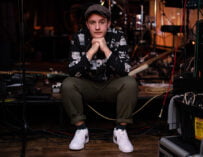
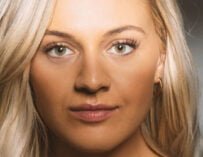

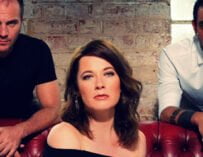
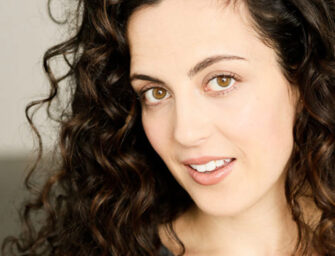
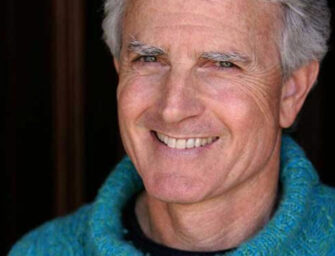
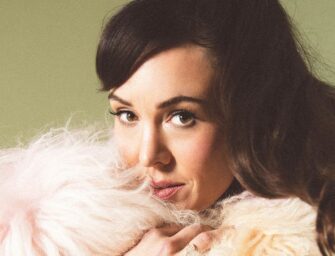
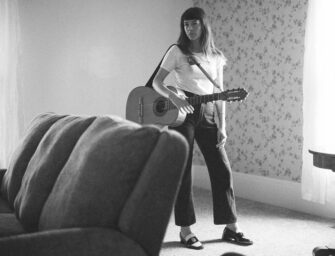
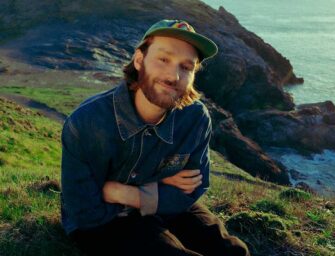























Related Articles